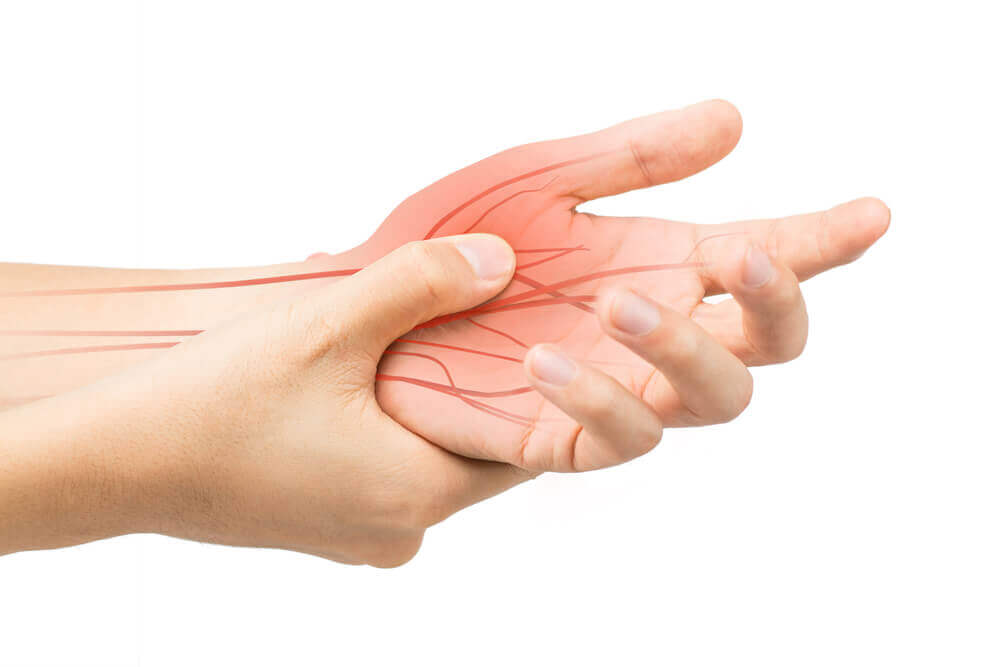
How to Treat Ilioinguinal Nerve Pain
Ilioinguinal nerve pain, also known as back nerve compression or irritation, is a common cause of pelvic and lower abdominal discomfort. This condition manifests as burning sensations in the lower abdomen, radiating to the genitalia, inner thigh, or pelvic region. The friction between the lower spine and the ilioinguinal nerve is responsible for this discomfort.
What is Ilioinguinal Neuropathy?
Ilioinguinal neuropathy is characterized by compression or irritation of the ilioinguinal nerve, a sensory nerve originating from the lower spinal region (L1) and supplying the skin of the lower abdomen, genitalia, and inner thigh area. The compression or irritation of the ilioinguinal nerve can lead to pain and discomfort in the affected areas.
Recognizing Symptoms and Potential Complications
Patients experiencing ilioinguinal neuropathy often find themselves bending over in an attempt to alleviate some of the discomforts. If left untreated, the condition can lead to bulging muscles in the anterior abdominal walls, sometimes mistaken for inguinal hernias or motor deficits. These bulges can persist for weeks before eventually resolving on their own.
Identifying the Causes
Ilioinguinal neuropathy can stem from various causes. Here, we highlight four potential contributors to this condition:
- Trauma or Injury: Ilioinguinal nerve pain can be caused by direct trauma or injury to the nerve. This may occur due to accidents, falls, surgical procedures, or sports-related injuries. The nerve can become compressed, irritated, or damaged, leading to persistent pain in the ilioinguinal region.
- Nerve Entrapment: Nerve entrapment refers to the compression or constriction of the ilioinguinal nerve as it passes through tight spaces or anatomical structures. In some cases, the nerve may get trapped between muscles, ligaments, or other tissues, causing pain and discomfort. This can occur due to muscle imbalances, scar tissue formation, or structural abnormalities.
- Hernias: Inguinal hernias can contribute to ilioinguinal nerve pain. When a hernia occurs, the contents of the abdomen, such as a portion of the intestine, protrude through a weakened area or opening in the abdominal wall. This can put pressure on the ilioinguinal nerve, resulting in pain and sensory disturbances in the affected area.
- Nerve Damage or Disease: Certain medical conditions and diseases can damage or affect the ilioinguinal nerve, leading to chronic pain. For example, conditions like diabetic neuropathy, peripheral neuropathy, or nerve entrapment syndromes can cause nerve dysfunction and result in ilioinguinal nerve pain. Additionally, inflammatory conditions such as pelvic inflammatory disease or infections in the pelvic region can contribute to nerve-related pain in the ilioinguinal area.
Exploring Treatment Options
When it comes to addressing ilioinguinal neuropathy, several treatment options are available. The initial approach often involves using nonsteroidal anti-inflammatory drugs, anti-neuropathic medications, and mild opioids to manage the pain.
If conservative treatments prove ineffective, an ilioinguinal block using steroids and local anesthesia may be recommended as a therapeutic intervention.

SCHEDULE A CONSULTATION
Experience a pain-free life! Call us at (727) 268-0172
Understanding Ketamine Infusion Therapy for Ilioinguinal Neuropathy
Ketamine infusion therapy is an emerging and promising treatment for managing chronic pain, including conditions like ilioinguinal neuropathy. Traditional pain management methods may fall short of providing sufficient relief for this challenging nerve-related pain. Ketamine infusion therapy offers an alternative approach for individuals grappling with persistent ilioinguinal nerve pain.
The Goals of Ketamine Infusion for Ilioinguinal Nerve Pain
Ketamine infusion therapy for ilioinguinal nerve pain aims to interrupt the transmission of pain signals from the affected nerve and reset the pain processing pathways within the central nervous system. By specifically targeting NMDA receptors, ketamine helps reduce the intensity of pain signals. It provides relief for patients experiencing chronic ilioinguinal nerve pain.
The Unique Properties of Ketamine
Ketamine is an anesthetic medication that, when administered intravenously at lower doses, exhibits distinct properties that can modulate pain perception and provide analgesic effects. It acts on various receptors in the central nervous system, notably the N-methyl-D-aspartate (NMDA) receptors, which play a crucial role in pain processing.
The Process of Ketamine Infusion Therapy
During a ketamine infusion session, patients receive a carefully controlled and monitored intravenous infusion of ketamine over a specific duration. The dosage and treatment duration are customized based on individual needs and responses. Typically, ketamine infusion therapy takes place in specialized clinics or hospital settings under the supervision of trained medical professionals.
Advantages and Treatment Course
One notable advantage of ketamine infusion therapy is its rapid onset of action. Many patients report experiencing pain relief during or shortly after the infusion session. However, it is important to note that multiple sessions may be necessary to achieve long-lasting results. Ketamine infusion therapy often involves a series of treatments spaced over several weeks or months to maximize its effectiveness.
Continued Research and Optimizing Treatment
While ketamine infusion therapy shows promise as a potential treatment for ilioinguinal nerve pain, ongoing research and clinical studies are necessary to further understand its effectiveness and refine treatment protocols. Consulting with a knowledgeable healthcare professional in pain management will provide you with the most up-to-date information and guidance regarding ketamine infusion therapy for ilioinguinal nerve pain.

Schedule a Consultation
Living with persistent pain can be incredibly challenging, impacting every aspect of your daily routine. At Florida Medical Pain Management, we understand the toll chronic pain takes on your physical and emotional well-being. That’s why we offer comprehensive, personalized pain management treatments
It’s time to reclaim your life from the grips of chronic pain. Trust the expertise of Florida Medical Pain Management and let our dedicated team guide you on your journey to pain relief. Call us now and start your path toward a brighter, pain-free tomorrow!
Our Treatment Services
Florida Medical Pain Management’s top priority is serving our patients’ needs and creating long-lasting relationships with them. Our treatments include:
- Treatment for Neuropathy
- Arthritis Management
- Back Pain Medication
- Chronic Pain Treatments
- PRP Injections
- Epidural Injection
- Regenerative Medicine
- Hip Pain Medication
- Ketamine Infusion Therapy
We want to help patients live more fulfilling and productive lives by effectively managing their pain. Florida Medical Pain Management also provides home therapy and many more. Click here to see our other services.















